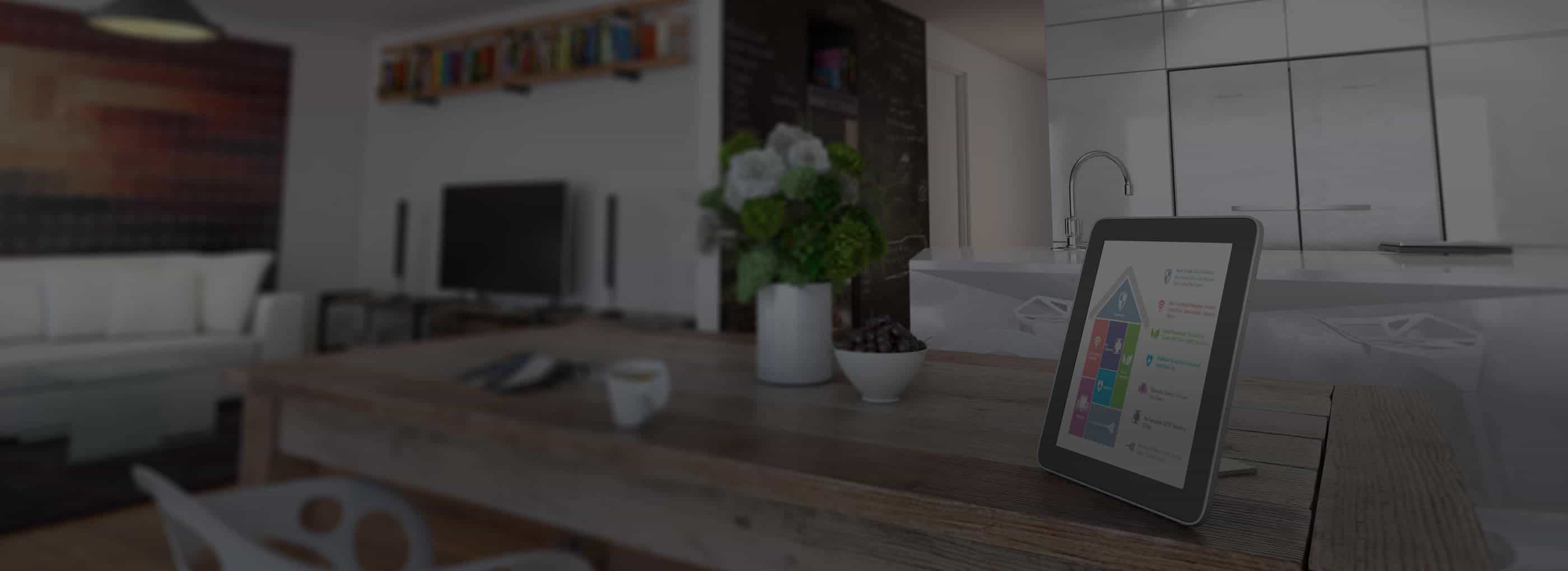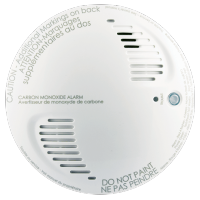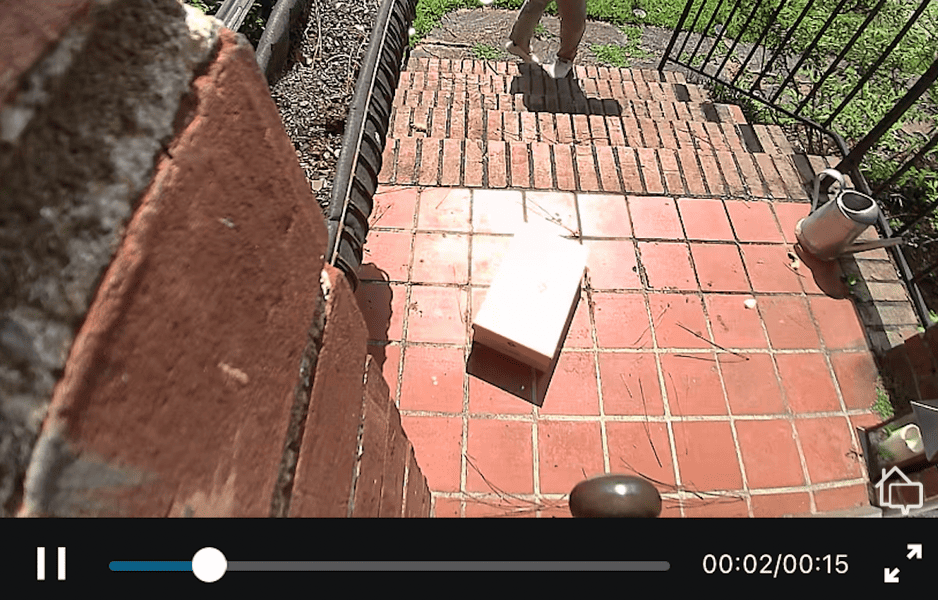
Psychologist of the police talking to a victim after a burglary with theft
Approaching your front door, you immediately spot a shattered lock. A rush of adrenaline pumps through your body as you cautiously push the door open, only to have your worst fears confirmed: Someone broke into your home.
A home burglary is a terrible and horrifying experience that can leave you distressed and shaken up. Your home — the one sanctuary where you’re supposed to feel safe — has been breached by criminals, but it’s crucial to keep a calm composure in the aftermath of a burglary. The ball is in your court now, and your next moves will decide how quickly you can reclaim your sense of security and recover from this dreaded experience.
How does your home measure up when it comes to security? Take this quiz to see how you score, and get recommendations to protect your home.
What You Should Do After a Home Burglary
Your mind may be in disarray after finding out someone broke into your home, so let’s discuss what you should do in order of priority.
Your Safety Is the First Priority
Your first instinct may be to run after or confront the intruder, but your safety should always be priority No. 1. You never know if the intruder is armed. According to the FBI, the majority of burglaries involve forcible entry1, so there’s a good chance the intruder can harm you.
The best thing to do is back out and find a safe place to hide, such as a neighbor’s house or a public area where there are people around. If you believe the intruder is still in your house, it’s a good idea to let your family members know not to enter. Give them a call, make sure they’re safe, and tell them to stay put.
Pro Tip: These principles apply to home invasions, which is when someone breaks in while your home is occupied. During a home invasion, it’s best to ensure your safety first by avoiding confrontation and seeking a safe place to hide.
The Next Order of Business: Reporting to the Authorities
Once your and your family’s safety is ensured, the next thing to do is to call the police. If you have a monitored home security system, your alarm company may have already alerted the authorities. You should still call 911 yourself, however, to make sure they’re on the way and to get a clear timetable.
Once the police are at your house, you may be tempted to go in to check if your valuable belongings have been stolen. Remember that your house is an active crime scene, however, so you should let the experts do their jobs. In the meantime, here are a few things you can do to assist without getting in their way:
- If you have security cameras installed, review, make a copy of, and surrender the footage to the police. They have procedures in place for methodical retrieval and review of video evidence.2
- Make a list of valuable items in your home, complete with descriptions and the approximate value of each item.
- Collect as many photos as possible of your property prior to the break-in, and give them to the investigators. The photos can help investigators spot evidence that may have been left behind by the intruder.
>> Related Research: Should You Share Your Security Camera Feed With the Police?
Starting the Recovery Process
While the investigation is underway, you can start the recovery process by calling your insurance company. Your provider will require official reports and other documentation, and then send an insurance adjuster to assess the damage before any repairs can be done. If you want to go back to normal life as quickly as possible, you should not delay calling your insurance company.
Here are the contact details for filing claims to the most commonly used insurance companies. If you don’t find your insurance company here, you’ll typically find its contact information in your policy.
| Insurance company | Contact details for claims |
|---|---|
| State Farm | 800-732-5246 |
| Allstate | 800-255-7828 |
| Lemonade | Through the Lemonade app |
| USAA | Through the USAA mobile app |
| Liberty Mutual | 800-225-2467 |
If you have a monitored home security system, it’s also a good idea to let the monitoring center know about the incident. Some alarm companies have policies and guarantees that cover events such as burglary and theft, and you may be able to get compensation from them. When we reviewed ADT, for example, we found out it has a theft protection guarantee that can cover up to $500 of your insurance deductibles if you meet the requirements.3
FYI: Generally, your security system has to have been armed and in good working order during the burglary for a theft protection guarantee to take effect.
Recovering Stolen Items: Is It Possible?
Depending on your policy, your insurance provider will cover most of the cost of your stolen belongings. Some items are priceless, however, and can’t be replaced by any amount of cash. It could be a prized family heirloom, an item with sentimental value, or a laptop that contains precious data such as family photos.
Sadly, there’s no guarantee you’ll retrieve those things. Even if the thief is caught, there’s a good chance they already cashed out on the stuff they stole from you. That said, if you’re genuinely interested in getting those items back, there are a few things you can try:
- Visit local pawn shops: If the burglar is trying to make a quick buck, their first stop is usually a pawn shop. If you find your item, though, don’t tell the pawn shop owner it was stolen from you. Call the police, and when they show up, provide them your police report and let them handle the rest.
- Go on Craigslist and eBay: Another hotspot for stolen goods, you may be able to find your belongings being sold on online marketplaces such as Craigslist and eBay. Don’t try to set up a meeting on your own, however. It’s advisable to enlist the help of the police.
- Post on social media: It’s a long shot, but seeking help in recovering stolen items — especially if they’re unique — on social media sometimes helps.
Regaining Your Sense of Security
In addition to financial loss, a home burglary can exact an immense toll on your mental and emotional well-being. It can take away your peace of mind and sense of security to the point that you no longer feel safe in your own home.
Regaining that sense of security can take time, but actually boosting your home’s physical security can be of great help. The best way to start is by securing the place where the break-in started: the point of entry. How did the burglar get into your home, and how do you prevent future break-ins? By investing in the right security equipment.
| Point of entry | Security equipment to buy |
|---|---|
| Front door | Video doorbell, door sensor, reinforced strike plate, dead-bolt lock |
| Sliding glass door (patio or side entry) | Door sensor, door blocker, security film, glass-break sensor |
| Sliding window | Security film, window grille, window sensor, glass-break sensor |
| Garage door | Tilt sensor, automated garage door, motion-activated lights |
If you don’t already have one, it’s a great idea to set up a home security system to enhance your home’s overall security. A security system often comes with sensors that will alert you in case of another break-in, as well as sirens to potentially ward off the intruder. We recommend a monitored security system so a monitoring facility can call the police on your behalf if you’re unavailable to respond to a break-in.
FYI: SafeHome is now livestreaming! Got questions about home security? Email us at info@safehome.org, and we’ll answer your questions live on our next stream—personalized advice, straight from the experts. Find us on YouTube @safehome_org. Don’t miss out!
SafeHome’s Latest Livestream
Our home security experts are now doing livestreams with industry experts like retired SWAT Commander Gene Petrino. Learn how to protect your home and family from thieves, burglars, and home invaders.
Conclusion
A burglary is one of the worst things that can happen to someone, and it happens to millions of people every year. They say an ounce of prevention is better than a pound of cure. We agree, but knowing the right cure — in this case, what to do after a home burglary — can save you a ton of headaches now and in the future.





